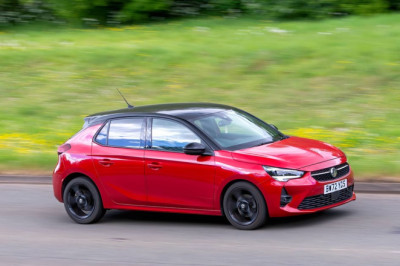
Some motorists are paying almost £5,500 per year to get behind the wheel after changes introduced by Rachel Reeves and Labour earlier this year. The Government decided to double first-year Vehicle Excise Duty (VED) tax charges for almost all petrol and diesel models from April this year.
The changes affect almost everyone with a combustion engine, but those travelling behind the wheel of the highest polluting vehicles are most affected. Last year, road users with the keys to models emitting over 255g/km of CO2 would have paid just £2,745 in year one VED rates. However, this has now doubled to a staggering £5,490 in an eye-watering figure many are unlikely to afford.

The changes mean vehicles emitting between 226 and 255g/km of CO2 are now charged £4,680 to use the roads. Meanwhile, motors emitting between 191 and 225g/km of CO2 will pay £3,300 in year one followed by £2,190 for cars emitting 171 to 190g/km of CO2.
The decision to increase first-year VED rates was confirmed at last year's Autumn Budget and came into effect over the Spring. HM Revenue and Customs (HMRC) stressed the new policy was introduced to widen the difference between zero-emission, hybrid and internal combustion engine cars.
HMRC said: "The government is committed to supporting the transition to electric vehicles. This change will increase the incentives towards new zero-emission cars at the point of purchase, and support take-up of new electric vehicles, which is crucial to achieving Net Zero. Revenue from this change will also help support public services and infrastructure across the UK.”
It is estimated that updates to VED fees would raise an additional £45million in revenue between 2025 and 2026. However, this is estimated to slowly decline as more motorists make the switch to electric vehicles, with just £200million in extra revenue expected by 2029/2030.
Officials stressed the scheme would have an "impact" on those buying brand new models, with individuals on higher incomes likely to be most affected.
HMRC added: “This measure will impact on motorists considering purchasing a new car from April 2025 onwards, including zero-emission cars. The increase in Vehicle Excise Duty first-year rates may have more impact on people with higher incomes, as these individuals are expected to be more likely to purchase a new vehicle.”














